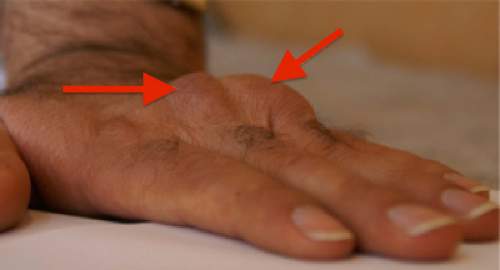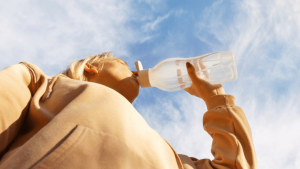THIS Is What You Need To Know About Your Cholesterol TODAY!
You’ll find it in many food labels, fitness infomercials, and health magazines, but are you really aware about cholesterol? More importantly, do you know how it affects your body and what solutions you can employ to resolve cholesterol imbalances? Here’s everything you need to know about cholesterol at a personal level.

What is Cholesterol?
In a nutshell, cholesterol is a waxy and fat-like compound located in almost all body tissue, primarily the blood and nerves. The body needs a healthy amount of cholesterol to create hormones, vitamins, and other substances that help in metabolism. However, too much cholesterol can lead to various health conditions, such as atherosclerosis – a disease wherein arterial flow is diminished because of plaque deposits on the inner arterial lining.
Little to no presence of cholesterol in the body would inevitably result in death. Living tissue is lined with a combination of fat, protein, and, you guessed it, cholesterol. Without this special mixture, cells will incur serious damage and eventually lead to cell death. Cholesterol also has anti-inflammatory properties that prevent certain immune system disorders. It also plays a key role in the transport of key electrolytes within the body. Enough about the benefits of cholesterol for now. Let’s see the normal and desired levels of the compound.
Normal Levels of Cholesterol
Cholesterol levels are measured by means of a blood test. The test identifies total cholesterol amount, LDL and HDL levels, and triglycerides. The National Cholesterol Education Program advises less than 100 mg/dL as the optimal cholesterol level while 130 to 159 mg/dL is considered borderline high and should be consulted to a physician. Greater than 189 mg/dL is considered extremely high and require immediate remedy otherwise health conditions may emerge, according to Lab Tests Online.org.
These numbers are all based on the premise that a person has no other risk factors contributing to the rise or decline of his/her cholesterol levels. This, however, is impossible since regular diet, frequency of exercise, and other lifestyle and environmental factors all contribute to the actual numbers. Desired goals for LDL can be achieved through certain lifestyle changes, which is the usual go-to treatment for abnormal cholesterol levels.
Link Between Cholesterol and Health Conditions
According to the Centers For Disease Control And Prevention, high LDL cholesterol or dubbed as the “bad” cholesterol put people at twice the risk for heart disease compared to people with normal LDL levels. And in the United States alone, according to the same source, heart disease is the leading killer for both men and women. An estimated 610,000 Americans or 25 percent of the total yearly deaths in the United States is believed to be caused by heart disease.
A 1948 study conducted by William Casteli, a medical doctor, serves as a solid foundation concerning the link between heart disease and the factors that influenced its rate, one of which is cholesterol. During the study, Casteli was able to prove that certain cholesterol levels exist wherein signs of coronary artery disease were untraceable. Data gathered during the study shows that subjects who had cholesterol levels below 150 mg/dL had the lowest risk for developing heart disease.
Causes and How to Avoid it
The causes of high cholesterol levels can be classified into two groups – modifiable and non-modifiable. Risk factors that belong to the modifiable group include diet and exercise. What you eat and how you burn what you eat play equally essential roles in the buildup of heart complications later on.
In terms of diet, you can substitute fatty and hard-to-digest meats with salmon, mackerel, and other fish that’s rich in heart-friendly Omega-3 oils. Baked salmon or grilled tuna are popular recipe choices for those who are looking into adopting a heart-friendly diet but still want the protein and nutrition offered by an omnivorous lifestyle. Bake the salmon in aluminum foil under 450-degree heat for 25 to 30 minutes depending on the size of the fish. You can add seasoning for taste including salt, pepper, parsley, and even honey.
RELATED ARTICLE: This Amish Recipe Reduces Cholesterol And High Blood Pressure Almost Immediately
Link Between Cholesterol and Health Conditions

Genetics, unfortunately, is a non-modifiable risk factor. You simply cannot rewrite your genetics to avoid heart complications. Physical exercise can help lower your risk for heart disease. Running for at least 1 hour thrice per week is a good natural remedy for high cholesterol levels. Swimming and kickboxing are also good physical activities that work out the cardiovascular muscles.
Naturally, cholesterol is a beneficial component of the body. It helps with bone density, calcium regulation, electrolyte transport, and even increases mental sharpness and focus. However, like any other thing that’s good for you, regular maintenance and monitoring are crucial to keeping cholesterol levels at bay.






